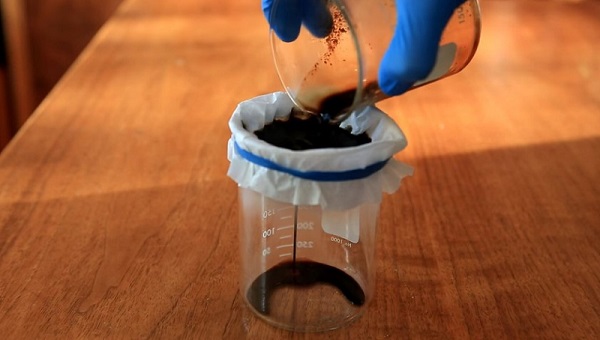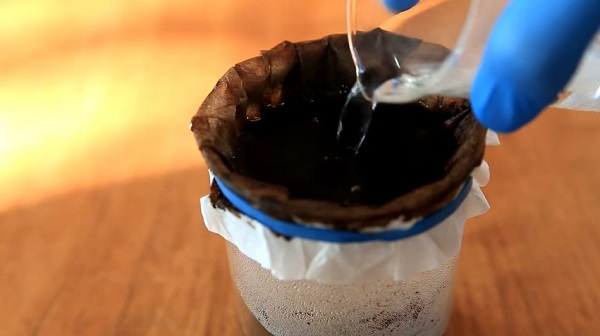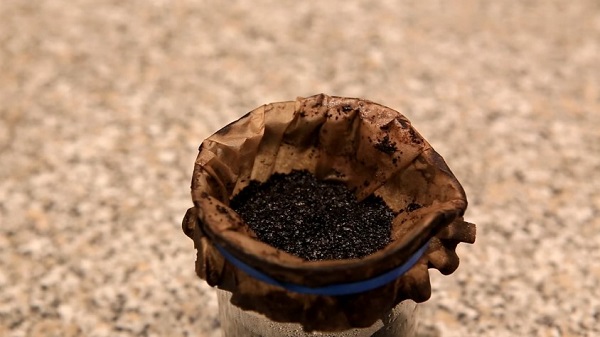Coffee contains a substance called caffeine, which stimulates the central nervous system. According to studies, it has been seen that intake of coffee in the correct quantity helps in improving mental performance, particularly increasing alertness, attention and concentration. This article is to give an idea about why caffeine is good and why it is beneficial for the body in moderate amounts, while also giving you coffee addiction facts.
Why do people consume caffeine?
There are a few health benefits of coffee. A person who regularly drinks coffee would tell you that this improves alertness, concentration, energy, clear-headedness, and feelings of sociability. There are people who need that first cup each morning before they can start a dialogue. Scientific studies have supported these subjective findings. It can solve the problem of certain types of headaches too.
There are not a large number of researches but from the result of these researches, it has been found that the regular intake of coffee reduce the risk of the Parkinson’s disease, liver disease, colorectal cancer, type 2 diabetes, and dementia.
It has been found that four or more cups of coffee daily may lower your risk of getting infected with cancer.
The smell of the coffee can bust stress. This is the reason why your morning tea smells so good.
It has been found that coffee might help fight obesity. There is a compound found in coffee which could help ward off obesity-related diseases. In a study it has been found that coffee prevented weight gain, and helped maintain normal blood-sugar levels. It also keeps livers healthy. If you gradually increase consumption of your coffee, it can also lead to a lower risk of Type 2 diabetes.
Recently, it has been found that drinking four or more cups of coffee per day could decrease the risk of depression in women, as per the result of the study from the Harvard School of Public Health.
However, there are always two sides of a coin. You have to understand that any consumption beyond a certain level can be harmful to you.
It has been clarified that if you consume moderate amount of coffee daily, it causes no harm to your body. The definition of moderate here is 300ml or three normal cups. However, caffeine tolerance varies from individual to individual and how much coffee is really “too much” is a subjective matter.
It is a well known fact that regular intake of coffee can make you dependent on it. Coffee addiction is very common in working professionals. There are multitudes of caffeine side effects which generally stem from coffee addiction.
Here are a few coffee addiction facts for you:
However the wrong caffeine amounts can have adverse effects on your body and mind instead of acting as a stimulant. It is said that the regular use of coffee may cause a certain dependence on it for. You can get coffee addiction if you take it regularly in excessive quantities but it does not have a bad effect like liquor or other addictive drugs. If you suddenly try to stop taking caffeine after a long use, you may have headache, fatigue, depression, etc.
The most common sources of caffeine are obviously coffee and tea leaves but there are also other ingredients like kola nuts and cocoa nuts.
Here are 10 signs that your brain is controlled by caffeine:
- It is a fact, with most of the people, that consumption of coffee later in the day can have an effect on your sleep. This is one of the most common side effects of drinking coffee. You can avoid this only if you consume this at least six hours before going to bed. But this difficulty may vary with your level of sensitivity. Coffee addiction depends on the metabolismand the caffeine amounts you regularly consume.
- It causes nervousness and restlessness.
- Depending on your body’s tolerance to caffeine, too much coffee can cause caffeine headache.
- There is also a scarier side effect of caffeine; it is possible to have an overdose of caffeine and symptoms of such overdose may include confusions and hallucinations. A severe overdose can cause convulsions leading to death ultimately.
- It has been found that people who are comparatively more sensitive would not only experience insomnia but might also have some other side effects like gastrointestinal upset. It can cause acid reflux or ulcers.
- Caffeine overdose can breathing trouble and rapid or irregular heartbeat. It can also cause muscle twitches.
- Caffeine side effects may include heartburn or an upset stomach as it raises the amount of acid in the stomach. It is also a diuretic, which triggers your body to get rid of water.
- Drinks with caffeine make your blood pressure increase for a short period of time. So it is not suitable for persons with heart diseases or high blood pressure.
- Excessive intake of caffeine may also lead to osteoporosis as caffeine is known to interfere with absorption and metabolism of calcium in your body.
- Caffeine should never be consumed by pregnant women as it can slow down fetal growth and may increase the risk of miscarriage.
How to diagnose that you are suffering from the side effects of caffeine?
Headaches, confusion, hallucinations, insomnia, restlessness, nervousness, upset stomach, nausea and increased heart rate are the common side effects of coffee addiction. Once you find out that caffeine is the root cause of your problems, you can try to cut down on your intake. But you must be very careful while doing so, because it may lead to caffeine withdrawal.
What are the symptoms of caffeine withdrawal?
Caffeine withdrawal is an extremely unpleasant and sometimes even painful experience. Usually, the most addicted a person is to caffeine, that is, the higher caffeine amounts a person consumes daily, the greater will be the intensity as well as the duration of caffeine withdrawal.
The most common symptom is the caffeine headaches which will generally start behind the eyes and then move up to the front of the head.
You will feel extremely tired. You will feel so exhausted that you will not be able to keep your eyes open. The lethargy will not let you do anything productive at all. Also, you will be in an irritable mood and will be prone to snap at anyone who comes in your way. You will feel like everything is getting on your nerves. It may also cause dizziness as well as nausea and vomiting.
Coffee withdrawal can also lead to constipation as usually caffeine helps in bowel movement.
Cutting off caffeine can lead to depression. It is not unusual for us to feel low sometimes but this will be totally different as it will feel like you are falling into a black hole.
It can also cause a lot of muscle pain or stiffness and even muscle cramping.
You will feel that you have lost the power to concentration on anything at all and will experience a lot of symptoms affiliated to catching the influenza, which may include blocked nose and sinuses. It will be difficult for you to do common and simple tasks properly. You may experience what is commonly called “brain fog” – the inability to have proper, systematic, coherent thought.
Even though cutting will make you lethargic, some people have trouble sleeping at all during the withdrawal period.
Since drinks with caffeine usually stimulate the heart muscle, cutting out caffeine can cause changes in the heart rhythm in certain people. It can also cause low blood pressure and even palpitations.
How can you beat coffee addiction?
Coffee addiction is something that you need to get rid of before it can cause permanent damage to your mind and body. But you need to be careful that you also succeed in avoiding as many of the coffee withdrawal symptoms as possible.
The first thing to keep in mind while cutting back on caffeine is that you need to do it gradually. Rome wasn’t built in a day, and you simply cannot get rid of your coffee addiction in a day or two. So take it slow! First, you need to identify exactly how much caffeine you are consuming in a particular day. Keep a track of how many cups of coffee you consume in a day.
Next, you have to set goals for yourself on how much to reduce per week. Getting rid of coffee addiction involves a lot of commitment and so you should set small goals instead of trying to take leaps. Small goals and achieving those will give you a sense of accomplishment and motivate you in continuing the regime.
Make sure the goals are reasonable. Do not set goals that are unlikely to achieve or that will be too harsh on your body. Remember that your body is trying to leave something it had become used to for a long time, so be gentle and kind to it. For example, if you try to halve your coffee consumption in a single week, you will end up either not achieving it or becoming victim to caffeine withdrawal symptoms. So instead, try to decrease the consumption by tiny amounts each week.
Remember that coffee is not the only source of caffeine. There are other sources as well such as tea, chocolates, sodas and energy drinks. Other less-obvious but likely sources can be coffee flavored ice cream, migraine medication, protein bars or diet bars, etc.
You can try to mix your regular coffee with a little decaffeinated coffee so that even if you consume the same amount of coffee, you are consuming lower caffeine amounts.
You can try alternative drinks like green tea to replace your cup of coffee. Even though tea contains some caffeine, the amount is much lower than that in coffee.
Cutting out caffeine can give make you tired and cause fatigue. You can get rid of this fatigue by having something small to eat or by taking an afternoon nap if possible. Make sure the snack is energizing and free from caffeine. You should avoid having processed carbohydrates for lunch in order to reduce the fatigue,
One of the most important things to remember while you are trying to get rid of coffee addiction is that you need to be extremely patient. Initially, the withdrawal symptoms may be almost unbearable for you. But slowly, the intensity will greatly reduce. Remember that you are doing this to improve your health in the long run and remind yourself that things will become easier soon.
Make sure you keep your body properly hydrated throughout the day. You should drink a lot of water, herbal tea or fruit juices.
You can use peppermint in order to reduce caffeine headaches. The scent and taste of peppermint may be beneficial in reducing the headache. You can have a peppermint candy or drink some peppermint tea.
If natural remedies do not help, you can try the over-the-counter medicines in order to mitigate caffeine headaches to some extent. You can take aspirin, Tylenol or ibuprofen for the headache. But be careful to stick to the safe dosage and do not intake excess medication.
Getting a massage may also help to reduce the withdrawal symptoms as it will help your body to relax. It may help in lessening the headache as well.
Conclusion: Should you drink coffee or not?
To conclude, coffee does have some wonderful properties, the most important one being acting as a stimulant, which is one of the most important reasons for its consumption. However, too much coffee can result in a lot of side effects. So the trick is to realize that you have developed the coffee addiction and to address the situation so that it does not get out of hand.
Caffeine itself is not harmful when it is taken in moderate quantity.


